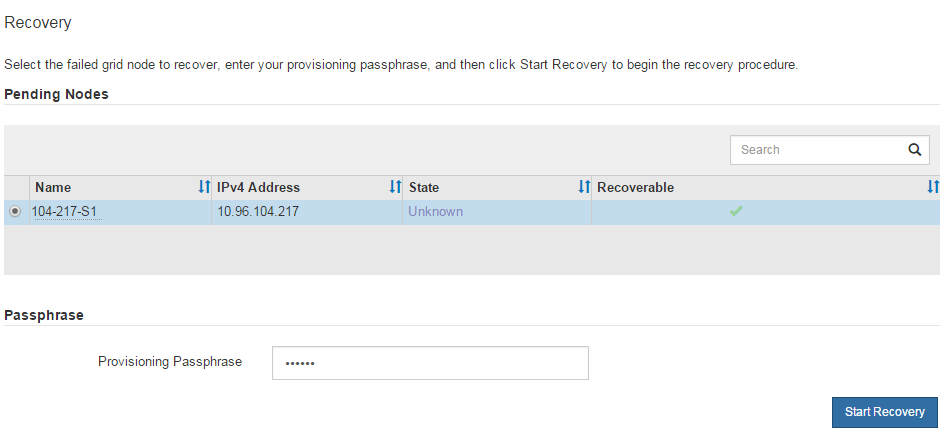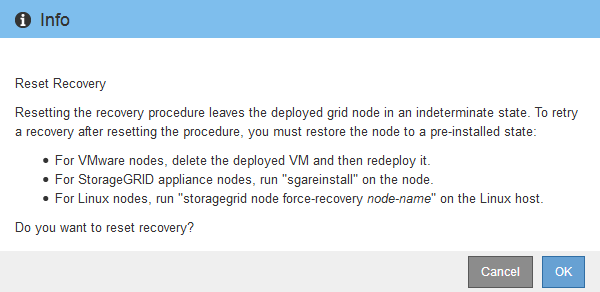Select Start Recovery to configure Storage Node
 Suggest changes
Suggest changes


After replacing a Storage Node, you must select Start Recovery in the Grid Manager to configure the new node as a replacement for the failed node.
-
You are signed in to the Grid Manager using a supported web browser.
-
You have the Maintenance or Root access permission.
-
You have the provisioning passphrase.
-
You have deployed and configured the replacement node.
-
You have the start date of any repair jobs for erasure-coded data.
-
You have verified that the Storage Node has not been rebuilt within the last 15 days.
If the Storage Node is installed as a container on a Linux host, you must perform this step only if one of these is true:
-
You had to use the
--forceflag to import the node, or you issuedstoragegrid node force-recovery node-name -
You had to do a full node reinstall, or you needed to restore /var/local.
-
From the Grid Manager, select MAINTENANCE > Tasks > Recovery.
-
Select the grid node you want to recover in the Pending Nodes list.
Nodes appear in the list after they fail, but you can't select a node until it has been reinstalled and is ready for recovery.
-
Enter the Provisioning Passphrase.
-
Click Start Recovery.

-
Monitor the progress of the recovery in the Recovering Grid Node table.
While the recovery procedure is running, you can click Reset to start a new recovery. A dialog box appears, indicating that the node will be left in an indeterminate state if you reset the procedure. 
If you want to retry the recovery after resetting the procedure, you must restore the node to a pre-installed state, as follows:
-
VMware: Delete the deployed virtual grid node. Then, when you are ready to restart the recovery, redeploy the node.
-
Linux: Restart the node by running this command on the Linux host:
storagegrid node force-recovery node-name
-
-
When the Storage Node reaches the “Waiting for Manual Steps” stage, go to Remount and reformat storage volumes (manual steps).




